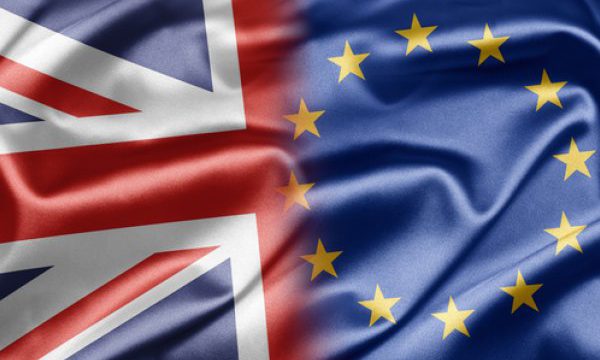Financial Markets and Policy after the Referendum Result
Uncertainty has gripped financial markets in the UK and around the world. The immediate response this morning has been unprecedented in the post Bretton Woods era. In the space of six hours sterling has fallen around 10 per cent against the dollar to the lowest level for 31 years. Stock market futures indicate that the equity markets will fall by around 10%. Further gyrations are expected over the coming days and weeks as market participants grapple with the implications of the results. The response so far reflects a weaker expected economic outlook at home and abroad.
Uncertainty has gripped financial markets in the UK and around the world. The immediate response this morning has been unprecedented in the post Bretton Woods era. In the space of six hours sterling has fallen around 10 per cent against the dollar to the lowest level for 31 years. Stock market futures indicate that the equity markets will fall by around 10%. Further gyrations are expected over the coming days and weeks as market participants grapple with the implications of the results. The response so far reflects a weaker expected economic outlook at home and abroad.
Uncertainty has gripped financial markets in the UK and around the world. The immediate response this morning has been unprecedented in the post Bretton Woods era. In the space of six hours sterling has fallen around 10 per cent against the dollar to the lowest level for 31 years. Stock market futures indicate that the equity markets will fall by around 10%. Further gyrations are expected over the coming days and weeks as market participants grapple with the implications of the results. The response so far reflects a weaker expected economic outlook at home and abroad.
It is important to be clear what markets and economists are forecasting. The UK economy will be smaller than it would otherwise have been inside the EU, both in the short term and on a longer term basis. The size of the loss depends which forecaster is right. The range of estimates over the short term is 1% to 3% and over the long term 2% to 8% less output per year than would have been the case under the status quo. The bigger range over the long term reflects the different possible trade arrangements. It is this ‘permanent’ rather than ‘temporary’ loss and the uncertainty over its magnitude that will influence the policy response.
The key area to watch is the interbank markets. This is where banks lend and borrow excess reserves to each other on a short term and unsecured basis. In periods of uncertainty, the amount of money being committed reflects how banks perceive credit worthiness. If they consider some counterparts to be weakened, they may stop lending and then the turmoil would spiral. The Bank of England has made sure that institutions have enough reserves for the short term and have significantly increased holding of capital and high quality liquid assets. Governor Carney’s comments this morning re-iterate that the Bank stands ready, in conjunction with other central banks as required, to meet institutions’ needs in order to prevent an escalation.
The fall in the value of sterling will lead to higher inflation. The combination of higher inflation and weaker economic growth creates a quandary for the Bank of England when setting monetary policy. If they raise interest rates in response to the expected rise inflation this may worsen the expected economic downturn. Given the financial risks, which act to bear down on activity, and the Bank’s already cautious outlook for the economy, it is most likely that they will not raise interest rates in response to inflation. The fact that the economy is likely to be smaller on a permanent basis also means that there will be less economic capacity and so interest rates may have to rise earlier than they would have done otherwise.
The Chancellor suggested that there would be an emergency budget if the UK leaves the EU. Until the direction of the economy is clear, it is unlikely that there will be significant fiscal policy changes. If the economy responds as economists have predicted with a permanent loss of capacity, then the fiscal position of the government will worsen. This will require a combination of higher taxes and lower spending to correct impact, or some need to re-consider the target for a fiscal surplus by the end of this Parliament. Over the longer term, the direction of adjustment will be toward further fiscal tightening if the government is to return the budget back to balance.
Credit rating agencies have indicated that UK government debt will be downgraded. If Northern Ireland and Scotland look likely to have independence referendums, there may be further credit downgrades. Credit ratings can lead to higher borrowing costs. However, there are conflicting forces: on the one hand, the weaker than expected economic outlook will lead to lower borrowing costs, but the credit downgrades will lead to higher borrowing costs. The net effect depends which is greater. Overall, the net impact on government actual borrowing costs is likely to be modest.
The government borrowing costs tends to put a ‘floor’ under the borrowing costs of banks. The credit ratings and borrowing costs of banks may worsen. The impact on banks’ equity prices so far has been large, despite the best efforts of the Bank of England. However, mortgage rates mostly depend on shorter term interest rates (for tracker and short term fixed rate mortgages). If the Bank of England does not change the policy rate, it is unlikely that mortgage rates will rise significantly.
References:
Armstrong, A. (2016). “EU membership, financial services and stability,” National Institute Economic Review, No. 236, pp31-38.
Baker, J., O. Carreras, M. Ebell, I. Hurst, S. Kirby and J. Meaning. (2016). “The short-term economic impact of leaving the EU,” National Institute Economic Review, No. 236, pp108-120.
Also available as Discussion paper working paper No 461
Chadha, J., P, Johnson and J Van Reenen (2016). “Leaving the EU would almost certainly damage our prospects”.
Available at http://www.niesr.ac.uk/blog/leaving-eu-would-almost-certainly-damage-our-economic-prospects#.V20CG_krKUk
Ebell, M. and J. Warren. (2016). “The long-term economic impact of leaving the EU,” National Institute Economic Review, No. 236, pp. 121–38.
Also available as Discussion paper working paper No 461


















